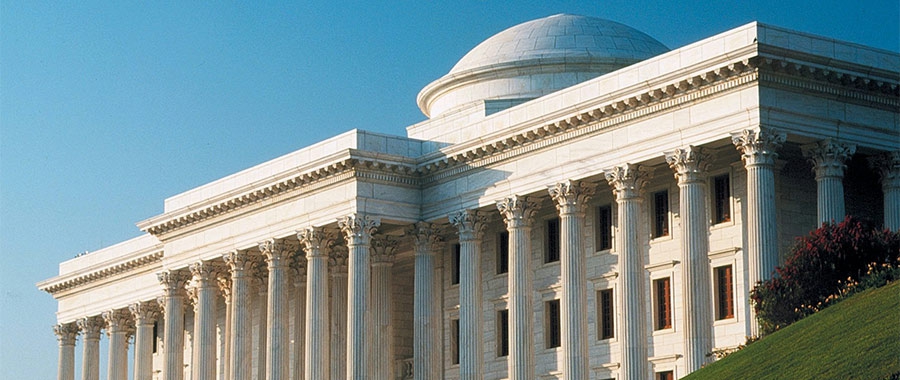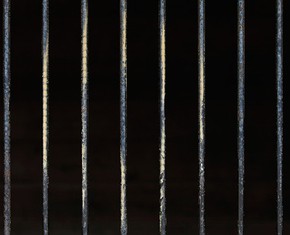The views expressed in our content reflect individual perspectives and do not represent the authoritative views of the Baha'i Faith.
The Baha’i teachings urge every Baha’i—indeed, every person on Earth—to cling to justice and oppose tyranny:
The light of men is Justice. Quench it not with the contrary winds of oppression and tyranny. The purpose of justice is the appearance of unity among men. The ocean of divine wisdom surgeth within this exalted word, while the books of the world cannot contain its inner significance. Were mankind to be adorned with this raiment, they would behold the daystar of the utterance, “On that day God will satisfy everyone out of His abundance,” shining resplendent above the horizon of the world. Appreciate ye the value of this utterance; it is a noble fruit that the Tree of the Pen of Glory hath yielded. – Baha’u’llah, Tablets of Baha’u’llah, pp. 66-67.
Given the evidently high regard that humanity has for justice, the widespread current acknowledgement of the importance of justice in every sphere in the life of society, including at the level of interpersonal interactions—treating others as we would like to be treated—clearly indicate the highly significant role that an institution of justice plays in the life of society.
For Baha’is, that institution is The Universal House of Justice, the supreme, democratically-elected global governing body of the Baha’i administrative system.
In addition to regenerating humanity through the influence of his revelation, the Baha’i writings testify that Baha’u’llah and his successor Abdu’l-Baha:
… unlike the Dispensations of the past, clearly and specifically laid down a set of Laws, established definite institutions, and provided for the essentials of a Divine Economy. – Shoghi Effendi, The World Order of Baha’u’llah, p. 19.
Baha’u’llah ordained successors to facilitate the fulfillment of the vision, will, and purpose of the Baha’i Faith, and the final successor is the Universal House of Justice—unique in all of the major worldwide Faiths because of its democratically-elected nature. Setting the pattern for the continuous administrative evolution and operation of the core institutions of the Baha’i Faith, the teachings of Baha’u’llah and Abdu’l-Baha led to the formation of numerous local and national governing institutions of the Baha’i Faith, laying the groundwork for the election of the Universal House of Justice. Shoghi Effendi, the Guardian of the Baha’i Faith, worked tirelessly from the 1920s to the late 1950s to extend that groundwork around the planet.
Once the Baha’i Faith had broadly spread to the world’s continents and countries, the Universal House of Justice began its ministry when the institution was first elected in 1963. The Universal House of Justice is now the primary institution responsible for the translation of the revelation of Baha’u’llah into social and cultural reality.
Through the terms laid down by Baha’u’llah, and the interpretations of both Abdu’l-Baha and Shoghi Effendi, the House of Justice can legislate on matters not already addressed in the writings of the Central Figures of the Baha’i Faith, satisfying the requirements of the Cause of God in the face of all new circumstances:
To enact laws and ordinances not expressly recorded in the Sacred Texts; to abrogate, according to the changes and requirements of the time, its own enactments; to deliberate and decide upon all problems which have caused difference; to elucidate questions that are obscure; to safeguard the personal rights, freedom and initiative of individuals; and to give attention to the preservation of human honour, to the development of countries and the stability of states …. – The Universal House of Justice, The Constitution of the Universal House of Justice, p. 4.
Clearly, the Universal House of Justice exists not only to guide the global Baha’i community, but to serve as exemplary proof that humanity can have a functioning, democratic international governing body empowered to stop war between nations and unify the world’s contending forces:
The experience of the Baha’i community may be seen as an example of this enlarging unity. It is a community of some three to four million people drawn from many nations, cultures, classes and creeds, engaged in a wide range of activities serving the spiritual, social and economic needs of the peoples of many lands. It is a single social organism, representative of the diversity of the human family, conducting its affairs through a system of commonly accepted consultative principles, and cherishing equally all the great outpourings of divine guidance in human history. Its existence is yet another convincing proof of the practicality of its Founder’s vision of a united world, another evidence that humanity can live as one global society, equal to whatever challenges its coming of age may entail. If the Baha’i experience can contribute in whatever measure to reinforcing hope in the unity of the human race, we are happy to offer it as a model for study. …
… the expectant voices of Baha’is can be heard despite the persecution they still endure in the land in which their Faith was born. By their example of steadfast hope, they bear witness to the belief that the imminent realization of this age- old dream of peace is now, by virtue of the transforming effects of Baha’u’llah’s revelation, invested with the force of divine authority. Thus we convey to you not only a vision in words: we summon the power of deeds of faith and sacrifice; we convey the anxious plea of our co-religionists everywhere for peace and unity. We join with all who are the victims of aggression, all who yearn for an end to conflict and contention, all whose devotion to principles of peace and world order promotes the ennobling purposes for which humanity was called into being by an all-loving Creator. – The Universal House of Justice, The Promise of World Peace, October 1985, pp. 4-5.
















Comments
Sign in or create an account
Continue with Googleor